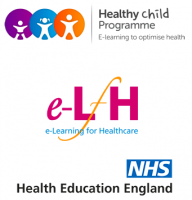Introduction to Autism Spectrum Disorder course for Medical Doctors



This session focuses on the causes and presentations of autism spectrum disorders and will help you to identify children with autism spectrum disorder (ASD).
Learning objectives
By the end of this session you will be able to:
- Identify the core features of ASD and gain an understanding of the variability in its presentation
- Describe the epidemiology of ASD and some of the current concepts regarding the neurobiological basis of ASD
- List the possible causative factors of ASD including genetics and environmental factors
- Explain the complexity of ASD and co-existing conditions
- Identify some of the difficulties encountered in diagnosis
- Describe school-based and tiered multidisciplinary assessment
This session uses self assessments that help you check what you have learnt. You do not have to use them and your answers are not seen by anyone else.
Before commencing this session you should complete the following HSC sessions:
- The Health School Child Programme in Context (411-001)
- The School Health Team (411-002)
- Introduction to Special Educational Needs (411-011)
- Assessment of Special Educational Needs (411-012)
Dr Daphne Keen is a Consultant Neurodevelopmental Paediatrician at St. George’s Hospital in London with particular interest and experience in the management of children with autistic spectrum disorders (ASD) and related neurodevelopmental disorders. She has had a longstanding involvement in the Paediatric Mental Health Association (previously BPMHG) and the development of the RCPCH Child Mental Health subspecialty.


Dr. Stacy John-Legere is a consultant community paediatrician, at Evelina London, GSTT NHS Foundation Trust. She is particularly interested in late childhood and adolescent developmental health issues, including diagnosis and management of autistic spectrum disorders (ASD) and associated conditions in the older child.
Dr Lorraine Wicksey was an ST3 Paediatrics trainee on placement at St George’s Hospital in London. Her current post is Community Paediatrics and Neurodisability.

- 03_06_10 ECG III
- Posted By eIntegrity Healthcare e-Learning
- Posted Date: 2024-11-02
- Location:Online
- This third and final session about the ECG discusses cardiac conduction and arrhythmias.
- 03_06_09 ECG II
- Posted By eIntegrity Healthcare e-Learning
- Posted Date: 2024-11-02
- Location:Online
- This session follows on from ECG I and presents the ECG as an electrical map of the heart. It details the abnormalities expected with myocardial infarction and left ventricular hypertrophy.
- 03_06_08 ECG 1
- Posted By eIntegrity Healthcare e-Learning
- Posted Date: 2024-11-02
- Location:Online
- This session explains how to record an ECG, the structure of the ECG and how to interpret the results. It further explains the use of the ECG in clinical practice.
- 03_06_07 Pulmonary function test interpretation
- Posted By eIntegrity Healthcare e-Learning
- Posted Date: 2024-11-02
- Location:Online
- This session will describe some of the basic respiratory investigations, and explain the relevance of the results obtained.
- 03_06_06 An alternative approach to acid-base abno...
- Posted By eIntegrity Healthcare e-Learning
- Posted Date: 2024-11-02
- Location:Online
- This session contains a link to the BJA Education article followed by a series of self assessment multiple choice questions.<br><br>The article will open in a new window or tab depending on your browser.<br><br> CPD credits are awarded by the RCoA for the







